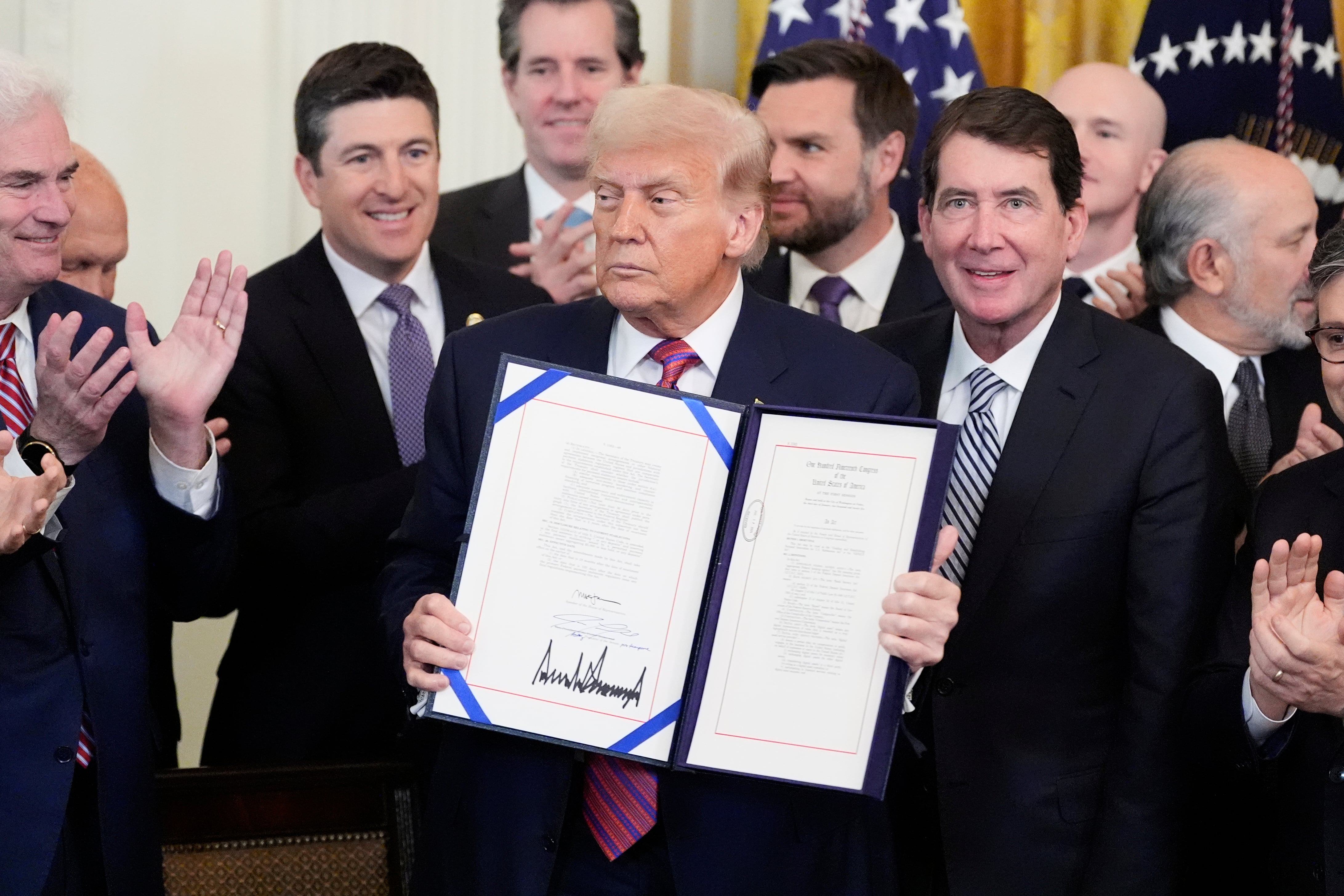WASHINGTON (AP) — President Donald Trump on Friday signed into law new regulations for a type of cryptocurrency, a major milestone for an industry that has spent heavily to strengthen its legitimacy and political might.
The GENIUS Act sets initial guardrails and consumer protections for stablecoins, which are tied to assets like the U.S. dollar to reduce price volatility compared with other forms of cryptocurrency. It passed both the House and Senate with wide bipartisan margins.
The new law is meant to bolster consumer confidence in the crypto industry, which has quickly become a major power player in Washington thanks to massive campaign donations and spending on lobbying. Its passage comes as Trump had repeatedly pledged to make the U.S. the “crypto capital of the world.”
“For years you were mocked and dismissed and counted out,” Trump told crypto industry executives at a White House bill signing attended by about 200 people, including several top GOP lawmakers. “This signing is a massive validation of your hard work and your pioneering spirit.”
The crypto industry has long complained it was unfairly targeted by former President Joe Biden’s administration and spent heavily to help Trump win last year’s election.
The president lavished praise on crypto leaders during his speech Friday, saying “nobody has gained the respect in such a short period of time.”
Trump said helping the cryptocurrency industry was “good for the dollar and it’s good for the country.”
“That’s why I backed you at an early stage,” said Trump, who had previously been a skeptic of cryptocurrency before embracing it. His administration has taken several early steps to boost the crypto industry, including the Securities and Exchange Commission dropping several enforcement actions against large crypto companies.
Trump then added a candid admission about the political calculus of his support for the crypto industry: “And I also did it for the votes,” he said, drawing laughter from the audience.
The president also joked that lawmakers had named the GENIUS Act after him. The acronym stands for “Guiding and Establishing National Innovation for U.S. Stablecoins.”
The use of stablecoins has grown dramatically in recent years. Circle, the U.S.-based issuer of one of the most popular cryptocurrencies, made its debut on the New York Stock Exchange earlier this year and quickly saw its value soar amid heavy interest from crypto enthusiasts and investors. Stablecoin issuers make profits by collecting the interest on the assets they hold in reserve to back their stablecoins.
A provision in the GENIUS Act bans members of Congress and their families from profiting off stablecoins. But that prohibition does not extend to the president and his family, even as Trump builds a crypto empire from the White House. His family holds a significant stake in World Liberty Financial, a crypto project that launched its own stablecoin earlier this year and received an early boost from an investment fund in the United Arab Emirates.
The House also passed two other bills Thursday that are meant to help the crypto industry. One creates a new market structure for cryptocurrency, and the other bans the Federal Reserve from issuing a new digital currency. Both measures now go to the Senate.









